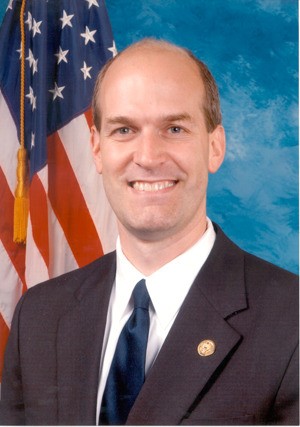By Rick Larsen
Special to the Journal
Growing up in Arlington, a lot of my friends worked minimum-wage jobs. I worked at a bookbindery during high school, pulling in about $3.50 an hour during the summer break.
That image of a high school student working a few hours a week for some extra cash is the idea that a lot of us get when we think about the minimum wage. Opponents of raising the minimum wage use that antiquated portrait to oppose wage increases today. They say a higher wage hurts businesses only to put a few extra bucks in the pockets of teenagers.
But the reality is that picture falls terribly short in illustrating the reality of the low-wage labor market today. So let’s debunk that myth now. The truth is that low-wage workers are older and often the sole breadwinners to support their families. Here are the stats, from the Center for Economic and Policy Research:
In 1979, 27 percent of low-wage workers were teenagers. Today just 12 percent are. The average age of low-wage workers is 35 years old.
One in 10 low-wage workers are college graduates, double the number from 1979. Women, who make up 49 percent of the workforce, account for 56 percent of low-wage earners.
Here’s another fact: working full time at the minimum wage is not enough to keep families out of poverty. That $3.50 an hour I was making back in the early 1980s may not sound like much, but the sad truth is that is actually more than minimum wage workers are earning around the country today, when adjusted for inflation.
It is unacceptable that millions of people are working full time at the minimum wage but still fall under the poverty line. Clearly it’s time for a change.
A few weeks ago, I joined more than 170 of my colleagues to co-sponsor the Fair Minimum Wage Act. This bill will raise the federal minimum wage from $7.25 to $10.10 and tie future increases to keep pace with inflation. Independent economists estimate such a change would lift 4.6 million people out of poverty.
Six years after the Great Recession hit, economists agree that the United States is on a strong rebound. The economy is growing, companies are hiring, and the stock markets are soaring.
But dig a little deeper into the data and you will find some troubling facts. The vast majority of income increases in the last few years have gone to the top earners. According to research at UC Berkeley, the top 1 percent of income earners took home 95 percent of the income increases between 2009 and 2012.
Earlier this week, The Bellingham Herald reported that with half of all Whatcom County’s jobs in low-paying retail and service industries, the county’s wages have stagnated lower than state and national levels for the last decade. Middle-class jobs that were axed in the recession are being replaced by low-wage jobs.
That makes it all the more important to raise the minimum wage. But there are other reasons to do it, too. Raising the minimum wage does more than help low-wage workers. Low-wage earners spend a far greater percentage of their paycheck than higher earners, meaning that most of the increased wages would be injected directly back into the economy. Economists estimate that an increase to $10.10 an hour would generate $22 billion in increased economic activity, creating 85,000 new jobs.
We need to do a lot more than raise the minimum wage to truly combat rising income inequality. One of the first things that Congress needs to do is extend emergency unemployment insurance that Congressional Republicans let expire last month. These benefits are often the last thing stopping people who are looking for work from falling into poverty.
We need to invest in education, so the next generation of workers can get the best jobs and grow the economy for all.
And of course we need to stay focused on creating good-paying, middle-class jobs by investing in transportation infrastructure, fueling small business growth and finding new markets to sell American-made products.
It is not a very complicated idea: In the largest economy in the world, people should be able to get a good education, find a job and be paid a salary that lets them feed and house their families. Making sure that a minimum wage pays enough to keep families out of poverty is an important first start to getting there.
— Editor’s note: U.S. Rep. Rick Larsen, D-Everett, represents the 2nd District, which includes parts of Bellingham, Sudden Valley, San Juan, Island, and portions of Skagit and Snohomish counties.



